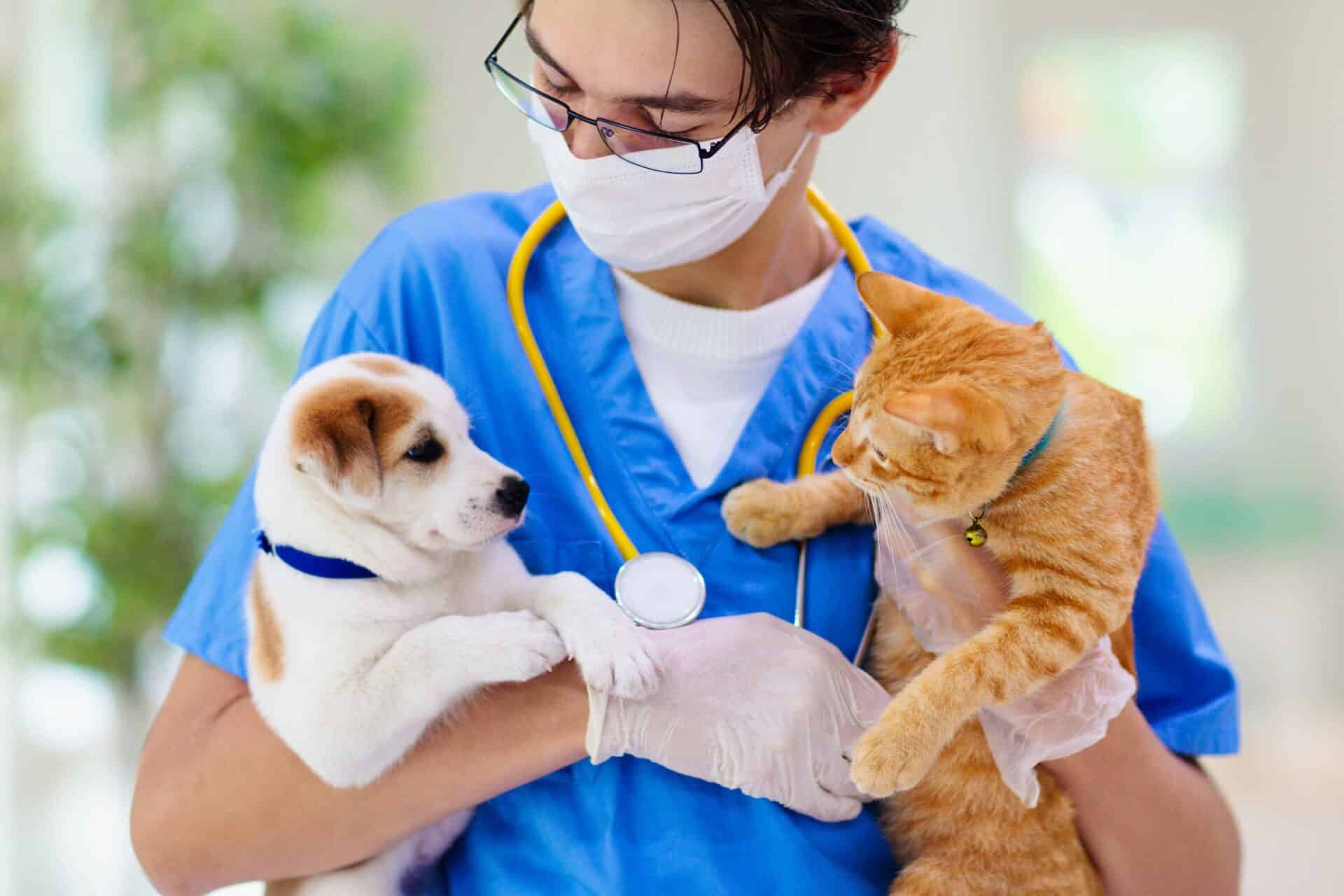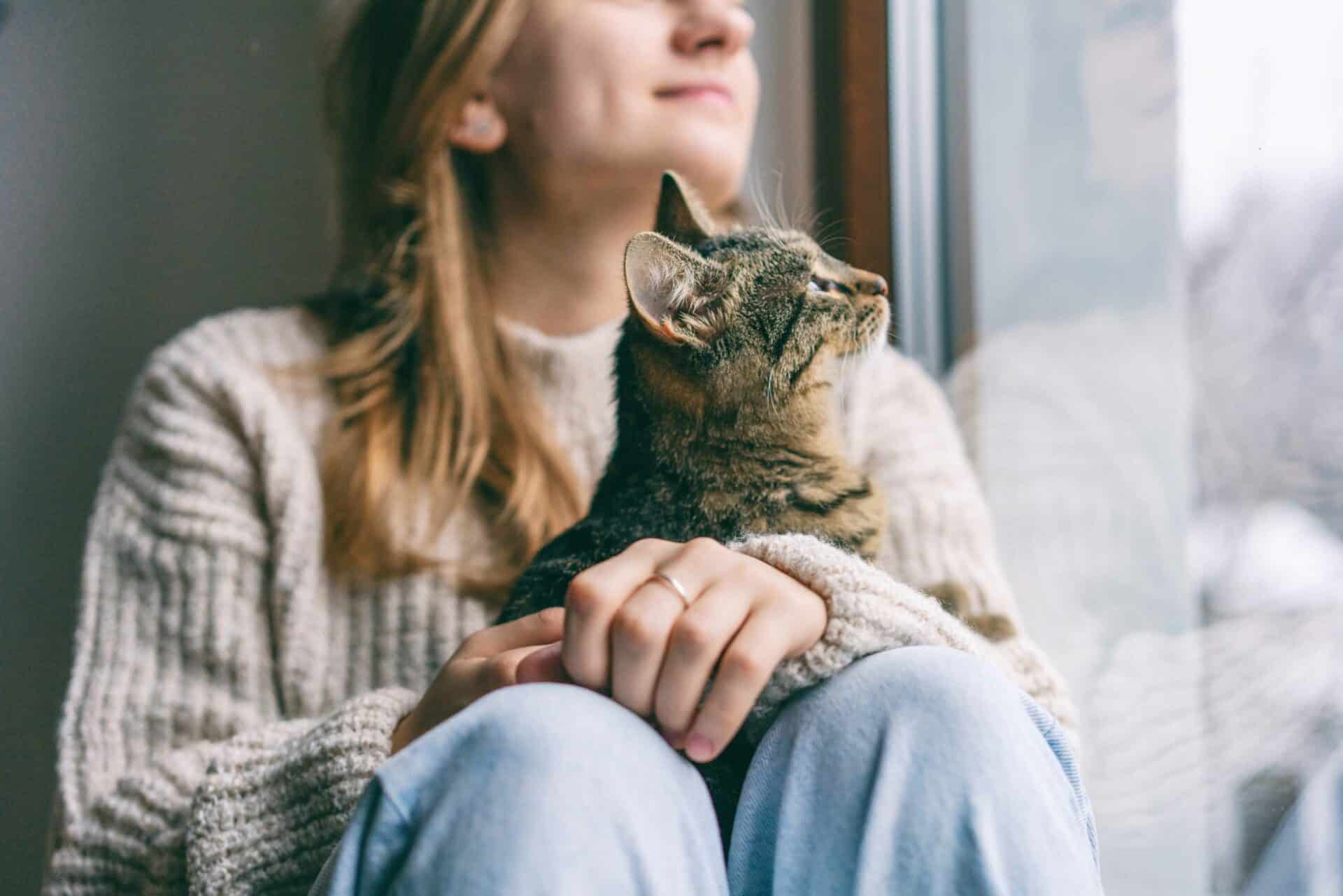Why Early Veterinary Care Is Important
Early veterinary care is important for puppies and kittens, whose rapidly developing bodies and immune systems require frequent attention, especially within their first 18 months. During this period, regular veterinary visits help monitor growth, administer vaccinations, and catch any potential health issues early. This structured care routine builds a strong foundation for your pet’s long-term health and resilience.
In essence, early veterinary care supports growth, immunity, and preventative health, ensuring a happy, healthy future for your new pet.

What to Expect at Your New Pet’s First Visit
Your puppy or kitten’s first veterinary visit at Shiner Animal Hospital is designed to give them a strong start in life with a personalized healthcare plan. Here’s what’s covered:

1. General Health Exam
This initial exam assesses your pet’s weight, heart, respiratory health, and overall wellness to ensure they’re growing as expected. It also includes checks for any congenital issues, like heart murmurs or hip dysplasia, to create a targeted care plan.
2. Fecal Exam
Many young animals have intestinal parasites passed from their mothers. A fecal exam detects common parasites like roundworms and hookworms, which, if untreated, can stunt growth and sometimes affect human health. Early detection allows for immediate treatment to safeguard both pet and family health.
3. Deworming Treatment
Deworming is essential to eliminate internal parasites, supporting young pets’ growth and preventing issues like anemia. Even if no parasites are found in the fecal exam, deworming is recommended as a preventive measure for healthy development.
4. Heartworm and Flea Prevention
Puppies and kittens are vulnerable to heartworm and flea infestations. Starting a heartworm and flea prevention plan early, with options like monthly tablets or topical treatments, provides critical protection against these parasites and related health complications.
5. Vaccinations and Boosters
Core vaccines (e.g., distemper, parvovirus, and rabies for puppies; feline viral infections and rabies for kittens) protect against serious diseases. Boosters, administered every 3-4 weeks until 16 weeks old, reinforce immunity as their immune systems develop. A customized vaccination schedule ensures your pet receives optimal protection.
6. Microchipping
Microchipping offers a permanent, reliable way to identify your pet if they ever get lost. It’s a quick, virtually painless procedure that provides lifelong peace of mind. We highly recommend microchipping during your puppy or kitten’s early visits to ensure they’re protected right from the start.
This first visit is a foundation for health, ensuring your puppy or kitten grows strong, healthy, and well-protected.
Building a Safe and Happy Home for Your Puppy or Kitten
Setting up a secure, welcoming environment is essential to help your puppy or kitten adjust to their new home. Establishing boundaries, gradually introducing them to other pets, and fostering their independence all contribute to a positive transition. Here are a few tips to help set up your home for a smooth transition:
Our veterinary team is here to offer guidance on making these introductions successful, ensuring your puppy and kitten adjust well to their new environment and each other. We’re happy to provide specific advice for raising puppies and kittens together or for creating a harmonious household if you have other pets.

Ongoing Veterinary Care: Investing in Your Pet’s Future Health
Continuing with regular veterinary care after your pet’s initial vaccines and exams supports their growth, monitors development, and protects against health issues. Shiner Animal Hospital provides essential ongoing care to ensure your pet stays healthy and happy.
Ongoing veterinary care at Shiner Animal Hospital provides the proactive health support your pet needs for a long, fulfilling life.
Pro Tip: If your pet hasn’t been microchipped yet, it’s never too late—just ask us at your next visit.

